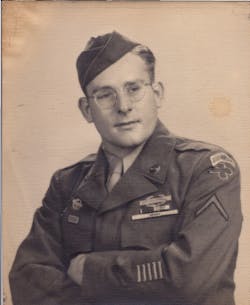For the past couple of years, I have been sharing my thoughts about what you might need to know as a first-line fire service supervisor. My “Riding the Right-Front Seat” series came about as a result of some serious discussions with my good buddy and best friend, the late Jack Peltier. We felt we needed to share what we had learned during our decades of active participation in the fire service.
Not long before he passed away in December 2012, Jack and I began discussions on the next logical progression of our information exchange with the fire service. He and I came to the conclusion that something had to be written to convey our thoughts on the knowledge, skills and techniques a person must acquire to become qualified to rise to chief-level positions within a fire department. Sadly, Jack passed away not long after we had fleshed in the new concept. I am now going to embark on this progress as a “living memorial” to my dear friend.
Effective leadership
Any review of the national-level officer training standard will leave you with a startling discovery: The national standard is silent on the issue of leadership. I was astounded by this fact. There was a great deal on managing resources, finances, public relations and organizational behavior. In line with that finding, I have decided to begin this new educational endeavor with some thoughts on how to be an effective leader.
I have been in the fire and emergency service world for nearly 50 years. And my writing for the fire and emergency service community has gone on for more than 38 years. The time has come for sharing my personal guidance to upwardly mobile company-grade officers. I have been one and I have seen a lot of other take the plunge.
My promotion from fire captain to battalion chief occurred back in 1990. At that time, one of the dignitaries made a statement that his years as a fire captain were the happiest of his career. Truth be told, my experience as a chief taught me that the time I spent as a battalion commander were actually the high point of my career. Life has a way of teaching lessons like that.
I was privileged to serve with some really fine folks. I learned it is critical to place the needs of your people ahead of your own. And trust me when I tell you this is a particularly difficult behavior to learn.
One of my models for leadership success has long been my late father, Colonel Harry B. Carter. To this day, I work hard to live up to the guidance he offered to me in 1977, when I first became a fire captain. It was in written form on the back of the congratulatory card Mom and Dad shared with me after my promotional ceremony.
Dad stated quite simply that as a fire officer, I must think of leading people in firefighting in the same terms that he had learned as a leader of men in the military. He suggested that it would be wise to think of myself as though I were a second lieutenant leading a platoon on a combat patrol on a wet, cold night.
When the patrol returned from their cold and tiring mission, it would be prudent for me to see that each man got a warm blanket and a hot cup of coffee before I got mine. Dad’s way was to always take care of his people. But he also stressed the importance of discipline and teamwork. I was most fortunate during my time as a young National Guard lieutenant back in the 1970s in that I came to know many of my father’s contemporaries. Almost to a man they expressed two thoughts about Dad:
1. When you were with Colonel Harry B. Carter, you knew that you were in the presence of a real soldier
2. The colonel always took care of his people
After his death in 1988, I had questions about how he acquired his leadership style. As with most people, my questions arrived far too late for me to get a tangible answer, Coincidentally, I developed a strong interest in my father’s World War II service and the actions of his unit; the 88th Infantry Division.
More than a half-dozen books have been written about the “Draftee Division.” The 88th Infantry Division was the first unit to enter combat that had a draftee population under the leadership of a Regular Army cadre. One book I read, Combat Soldier, was written by James Fry, who had been the commander of the infantry regiment in which Dad served. That book told me volumes about where my father started to develop his leadership style. Colonel Fry always led from the front. He worked to limit the number of causalities in his regiment. He fought for the necessary creature comforts whenever possible. He also mourned the loss of men that any war requires. Fry later served in the Korean War and retired as a major general. I believe his actions had an impact upon my father.
Just what did I see in the pages of that book? A leader who shared the hardships with his people. He ate the exact same meals as they did, so that he would understand how they felt, as well as what their energy level might be. And he ducked away from the same bullets that were being shot at his men.
Having read that book, I can now imagine the example that led my father to the analogy of the warm blanket and a hot cup of coffee. It was apparent to me that Dad saw the success of a combat infantry leader who lived by that motto through some of the worst fighting in the Italian Campaign.
Think about how that sort of caring and concern can help you to succeed as a chief-level officer in your fire department. That’s how it has been for me. On those occasions when I forgot about the men who worked for me, they took great pains to remind me of my failing. Let me assure you it can take a long time to regain their trust.
The message here is quite simple: If you take care of your people, they will take care of you. Create an environment wherein much is expected, but also give much in return. When your troops know you will go to the wall for them, they will move mountains for you.
Stay with me, gang. I really want to help.
Dr. Carter shares his perspectives in his “The View From my Front Porch” blog at: http://www.firehouse.com/blogs/the-view-from-my-front-porch.
LESSONS LEARNED
I’d like to share with you some leadership lessons I have learned over the years. These are all very important and you may choose to ignore them, but at your own risk. They are lessons you must learn if you are to be an effective chief-level officer:
1. Listen to your people
2. Do things in a proactive manner
3. Have a true passion for your job and your troops
4. Talk to your people, not above them or down to them
5. Motivate your troops
6. Lead by example and be willing to share in the work
7. Coach and mentor the team
8. Stand up for your people
9. Stand behind your people
10. Stand between your people and those who seek to attack them
11. Remember where you came from
12. Instill confidence and stand calm in the midst of chaos
13. Be fair and impartial
14. Know your job and know yourself and your limitations, strengths and weaknesses
15. Know your people’s jobs so you can supervise effectively
16. Establish a set of principles and operate consistently within them
17. Remain loyal to your team
18. Be consistent
19. Communicate effectively
20. Want to make a difference
21. See the big picture
22. Do not micro manage – let your people try
23. Remember people’s names
—Harry R. Carter, Ph.D.
HARRY R. CARTER, Ph.D., a Firehouse® contributing editor, is a fire protection consultant based in Adelphia, NJ. He is chairman of the Board of Commissioners in Howell Township Fire District 2 and retired from the Newark Fire Department as a battalion commander. Dr. Carter has been a member of the Adelphia Fire Company since 1971, serving as chief in 1991. He is a life member and past president of the International Society of Fire Service Instructors and life member of the National Fire Protection Association. He is president of the United States of America Branch of the Institution of Fire Engineers (IFE) of Great Britain. Dr. Carter holds a Ph.D. in organization and management from Capella University in Minneapolis, MN.

Dr. Harry Carter
HARRY R. CARTER, Ph.D., who is a Firehouse contributing editor, is a fire protection consultant based in Adelphia, NJ. He is chairman of the Board of Commissioners in Howell Township Fire District 2 and retired from the Newark, NJ, Fire Department as a battalion commander. Carter has been a member of the Adelphia Fire Company since 1971, serving as chief in 1991. He is a life member and past president of the International Society of Fire Service Instructors and life member of the NFPA. He is the immediate past president of the U.S. branch of the Institution of Fire Engineers (IFE) of Great Britain. Carter holds a Ph.D. in organization and management from Capella University in Minneapolis, MN.
Connect with Harry:
Email: [email protected]






